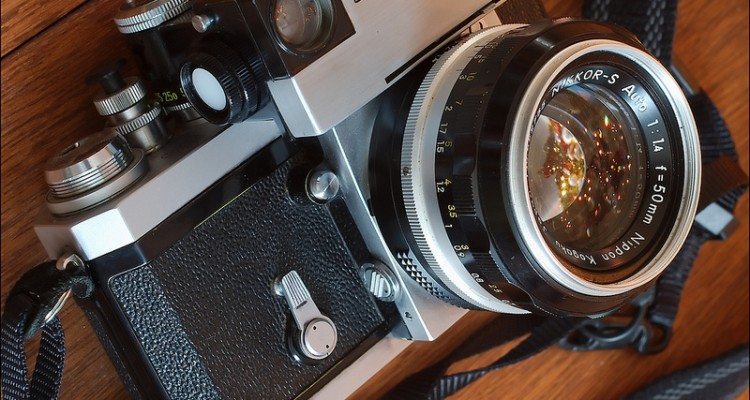Take a moment to reflect on how a wedding video can help keep your marriage vibrant. Once it wraps, you’ve got a constant reminder at your fingertips of the vows you made … one that could very well inspire your marriage to new heights, year after year.
And perhaps you can envision your video passed down from one generation to the next — as a legacy that could inspire your children, and even their children.
Why Add a Wedding Video to All the Other Expenses?

1. To have an audio/visual recording of possibly the most beautiful emotional experience of your lifetime.
2. To record your vows word-for-word. This moment usually passes so fast, it becomes a blur. But in video, you can see the sincerity and devotion in your eyes and hear the quiver in your voice when you declare your lifelong love for that one particular man or woman.
3. For many, this day is the most significant turning point of their lives. In the future, when you replay it, you may find yourself re-living the event with that same expansive spirit.
You’re the Coppola of Your Own Show
If you want a wedding video that inspires you and your partner for the rest of your days, you need to get somewhat familiar with the process. Here are some of the key players, and their roles:
Enter the Videographer
Today’s wedding videographer plays Camera Operator, Sound Engineer, Lighting Technician, Graphic Artist and Video Editor — all bundled into one person.
As the camera operator, the videographer is basically an opportunist. There are no rehearsals or re-takes, so he’ll (or she’ll) need to get it right first time … and this takes razor-honed skills from years of experience.
A talented pro combines passion with knowledge, and experience with an instinctual ability to recognize developing opportunities. In other words, videographers learn to cope with just about any given situation. But is that enough to make a great video?
Enter the Bride and Groom
In movie-making terms, you and your spouse-to-be are director, producer, scriptwriter … and on top of all that, lead actors in your own wedding video production.
Planning for Success
The relationship between you, your videographer and your photographer needs to be upbeat and mutually respectful.
It’s best to give your videographer and photographer as developed a guideline to the day’s events as you can manage. Discuss the spaces and lighting conditions they’ll be working in, and where they can stand. Talk about when they can circulate to capture various angles and light conditions.
Try to bring your photographer and videographer in on the discussion together. They’ll both need to share space — and discussing the logistics ahead of time is the clearest route to a smooth relationship.
If you want to know what’s on their minds as they form a game plan, here’s the answer: lighting, and space. Unfortunately, light and space are luxuries afforded by few wedding chapels, especially the smaller venues. So photographers and videographers need to improvise and cooperate under some pretty challenging conditions.
Scripting the Day’s Events
A script is basically a sequence of events. Typically, a wedding script looks something like this:
PRE-CEREMONY PREPARATIONS
The Bride
14h00 : Jessica. Hair and makeup in the dressing rooms at 42 Salisbury Ln.
Note: Noisy, fun, lots of natural light, mirror shot opportunities. Champagne glasses, clothes and jewelry lying around.
The Groom
14h50: Trevor. Half-dressed, shaving. 12 Garden Rd. at The Meadows.
Note: Little natural light in bathroom. Small space — bring extra light.
The Bride
15h30: Jessica. Photos in the garden, back at 42 Salisbury Ln.
Note: Get the bridal car as it drives in to pick up Jessica. Shoot her climbing into car. (Practice climb in with dress, if time allows)
The Virtues of On-Site Visits

If your resources allow, it’s not a bad idea to pay a site visit with your videographer and photographer to your venue and photo locations in advance (ideally, if possible, at the same time of day as the wedding). That way, your pros can mutually discuss and plan for the various elements of each scene: camera angles, sound, lighting, movement and other logistics. Typically, professional videogaphers and photographers will charge extra fees for this pre-event visit, but if your budget can handle it, the results will probably pay off.
But also keep in mind that things don’t always pan out as planned. The florist may plunk down a huge floral arrangement where the photographer was supposed to stand, blocking his view of the ring exchange. A storm might roll in, obliterating half the natural light.
But don’t worry: this is where experience comes into play. Pro videographers and photographers know how to make the most of all sorts of less-than-ideal conditions. This is what we love to do, and we already know that the perfect conditions don’t always materialize. So we adapt, changing the script on the fly.
Videos that Entertain … and Inspire
Your video may excel from a technical point of view. But if it lacks feeling, it won’t affect its viewers the way you hoped for. At worst, it could even come off as a boring record of a lifeless ritual.
Fortunately, the power to avoid this lies in your hands, as lead actors in this ‘reality-style’ video. Here are a few pointers for capturing plenty of life and emotion.
Be true to your feelings. Express them, don’t hide them. Your feelings should show up in your body language. Laugh, dance, even shed tears of joy. Let it out. The secret to good footage is simply to let your outside reflect your powerful inner feelings.
It’s true, things do go wrong at weddings. And brides and grooms get upset by the various logistical hiccups or badly-behaved relatives. Rise above these, and refuse to let anyone steal your joy. If you allow these little things to bring you down, rest assured the camera will pick it up.
Express your affection. From time to time, look deeply into the eyes of your new life partner. Don’t crowd your loved one, but stay warm and close. Be tender. Touch gently. Attend to his or her smallest needs. No matter how trivial these actions may seem, the camera will pick them up, and they’ll be remembered.
Stay tuned to the camera’s location. Try not to turn your back on the camera. Example: the first kiss. If you can, turn your bodies so the camera can capture that kiss full-on. After all, your videographer might be trapped behind Uncle Marty and unable to shift his spot. It’s your memory, so cooperate with the camera and help make it vivid.
Events that invite an emotional response are what makes for great wedding videos — the kind that inspire your children and theirs for generations to come.
Getting Down to Brass Tacks
The old multimedia adage, “Garbage In, Garbage Out” is as true for wedding videos as any other production. No matter how talented your video editor, only great raw footage leads to a masterpiece. Keep in mind, though, the process takes time, even when the source materials are excellent. A passionate editor can easily spend 30 hours perfecting the visuals, soundtrack and live sound on your video until they all flow together like a symphony.
Subtle editing can complement good footage, but fancy transitions and special effects won’t save a bad shoot. And too much recourse to hopped-up effects distracts the viewer’s attention. Remember: your video’s about your wedding day, not the studio’s transition suite. If you look at broadcast television or movies, they don’t use editor effects at all — for good reasons.
Quality Camera and Sound Equipment. The ultimate visual and sound quality of your video depends on the technology your videographer uses. Standards vary considerably, but typically, “you get what you pay for.”
From Weekend Warrior to Pro: Your Options
The Amateur. Maybe your brother or uncle offered to tape the wedding on a camcorder. At the end of the day, you’ll enjoy a free tape. Not the ultimate to be sure, but at least you’ll have something to remember your day by.
The Semi-Pro. A semiprofessional or hobbyist might use slightly better camera than your uncle would. What’s more, he or she may edit the footage on entry-level equipment for a modest fee.
The Professional. A professional wedding videographer makes a living from various productions that usually include, but aren’t limited to, wedding videos. His equipment quality will depend on how much business he attracts. Although it’s true that good equipment hardly equals a good video, it’s helpful to evaluate your videographer’s equipment as well as his skills before committing yourself to a deposit.
Lately, 3ccd high-definition digital cameras — which offer excellent picture quality under low lighting conditions — are within reach for most professional videographers. Equipment-wise, this is the least you should expect from a pro.
Also, entry-level, PC based editing software is financially accessible to almost any videographer. Today’s PC-based editing packages are more than capable of producing great results. Even the large video production houses use them.
Keep in mind that even if your final video’s delivered on DVD, that doesn’t ensure a clean, crisp copy. Transferring grainy, below-par footage to DVD doesn’t make it any better. Once again: Garbage In, Garbage Out.
Getting Up Close & Personal With Your Videographer
Videographers are skillful when they combine a passion to excel with real-life experience. But a pinch of two magic ingredients leads to an outstanding videographer. And those are patience, and a genuine love for people.
Given that, how much should you pay?
Couples often ask why one videographer costs so much more than another. The answer is classic: supply and demand. A videographer who can create an entertaining, inspirational video is a scarce commodity. As a result, his price will be higher, to reflect the increased demand for his work.
But that doesn’t mean you should just throw down your money for the highest-priced pros around. Look around. Compare videographers in the same price class. You may be pleasantly surprised.
Learning to Love Your Videographer
Cultivating a warm relationship with your videographer can make the difference between a cold, impersonal video and an intimate one. Spend time with a few videographers and talk about your day. Evaluate how you get along. Do you “click”? Society teaches us to be cautious with strangers, and this affects how we relate to everyone unfamiliar, including vendors. Try to break these barriers down. Learn to get comfortable around your videographer, and share your private space with him. Embarrassment, stiffness and tension is just about impossible to hide from the camera.
The Secret to a Great Video … In Five Words.
Have fun making your video. It’s not hard to do. If you have fun making it, your viewers will have fun watching it.


